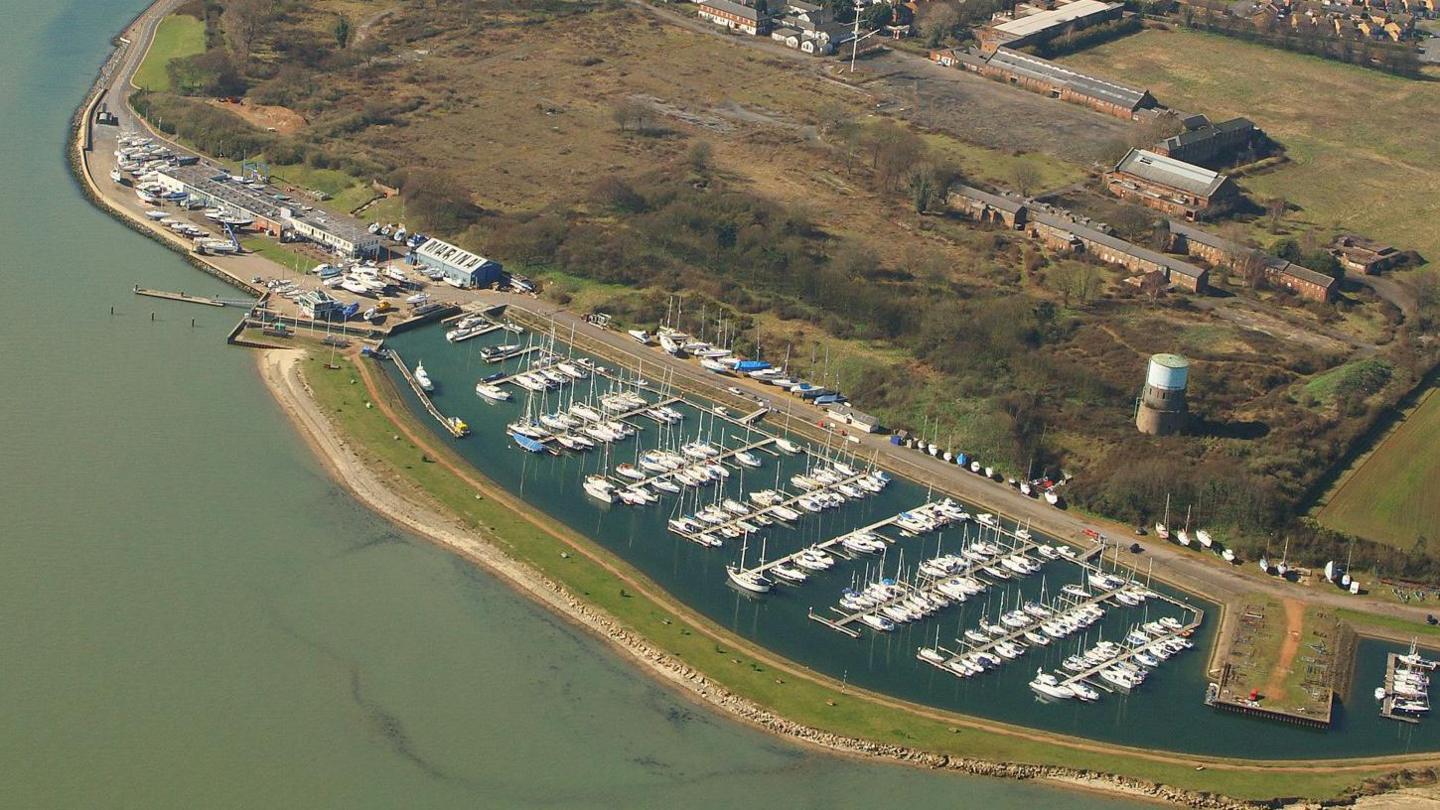'Smuggling people and drugs on yachts a real threat'
'Smuggling using yachts is a real threat'
- Published
"Within a few minutes it had grounded and a number of people were jumping into the shallow water and making their way to the riverbank," said harbour master James Bateman, describing the moment a yacht carrying migrants ran aground in Rye, East Sussex.
"The yacht itself wasn't suspicious, but it was clearly arriving here at the wrong state of tide, which immediately raised concerns."
This week the National Crime Agency said a people smuggling operation was uncovered when the vessel arrived in February 2022, carrying 14 people.
A former Independent Chief Inspector of Borders and Immigration has warned that the smuggling of people or drugs into small harbours using yachts poses a "real threat".
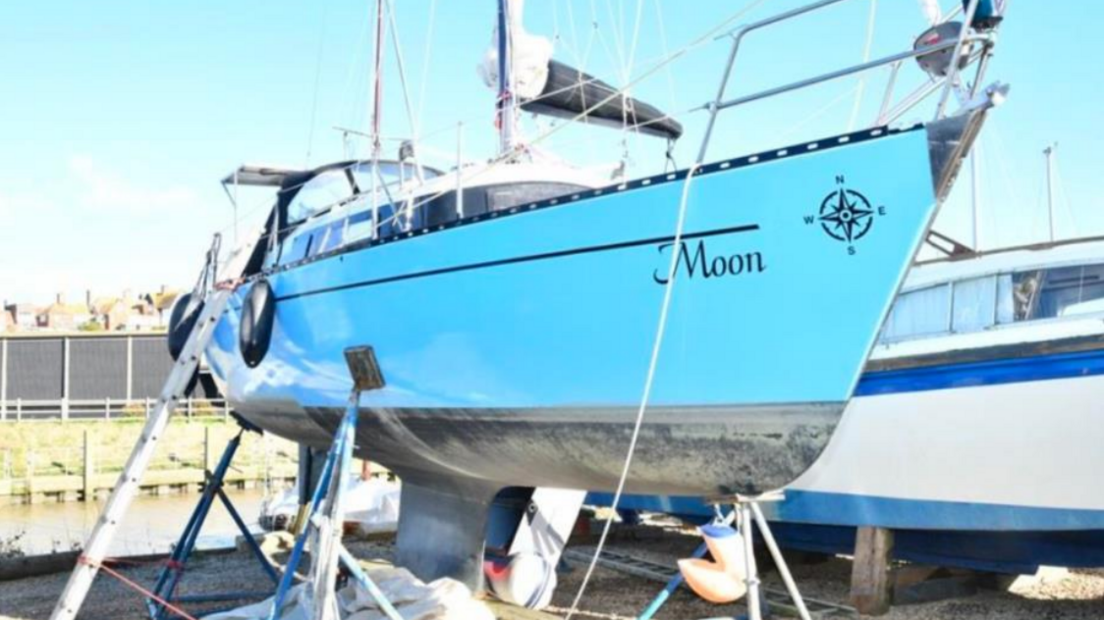
The yacht that ran aground in Rye was carrying 14 people
"I remember seeing a yacht approaching the harbour office, it hadn't reported in by either phone or radio and was arriving very late on the tide," Mr Bateman said.
"The yacht continued past the harbour office rather than stopping like a normal yacht would do."
Border Force detained 14 individuals, including two children, from Iran, Iraq and Albania within two hours.
"Cases like this are very unusual, this is the first I have witnessed in 14 years as the harbour master," added Mr Bateman.
"Coastal communities are a very important tool for Border Force. They're often very close, in continuous contact with one another, and very little goes unnoticed."
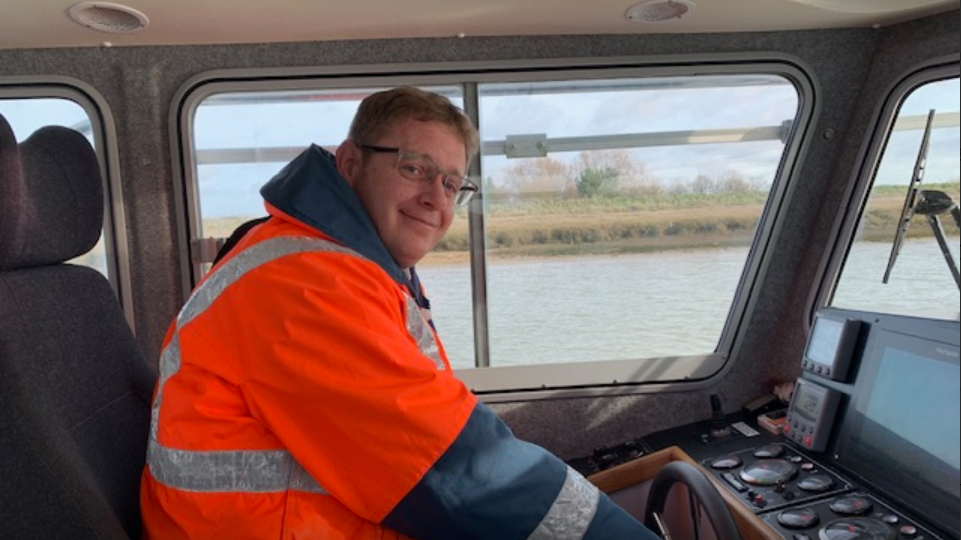
Rye harbour master James Bateman has described the moment he saw a yacht carrying migrants run aground
Over the last decade BBC South East has charted the increase in smugglers using small boats to move people across the Channel, which has become the main method of smuggling, ahead of using lorries.
These tend to be people wanting to be seen and rescued by the authorities.
What is less well known is how often pleasure craft such as yachts are being used to secretly move migrants or drugs into smaller marinas and harbours, or remote stretches of the coast.
"There is a very real threat that small ports and harbours are used in this way," warned John Vine, who was the Independent Chief Inspector of Borders and Immigration from 2008 to 2014.
"The more we clamp down on small boats activity, or we are seen to successfully return those who have made the journey back to France, this method may lose its attraction.
"We may see an increase in the use of clandestine methods to get into the UK and by using yachts entering small harbours also."
Over the last three years the BBC has reported on a number of smuggling attempts using yachts and pleasure craft.
On Thursday two men were convicted of smuggling a group of Albanian men into a marina in Suffolk.
In July an Albanian man was jailed for seven years for his involvement in a smuggling operation where 21 migrants crossed the English Channel on a hired yacht.
There have also been high profile drug smuggling convictions.
In August four men were jailed for conspiring to smuggle about £18m worth of cocaine into the UK after being chased by police in a boat.
In March, four men arrested at sea as they tried to smuggle cocaine with an estimated street value of about £100m into the UK on a fishing boat were convicted.
One south coast police force recently launched a new patrol boat to help combat smuggling and other maritime crime.
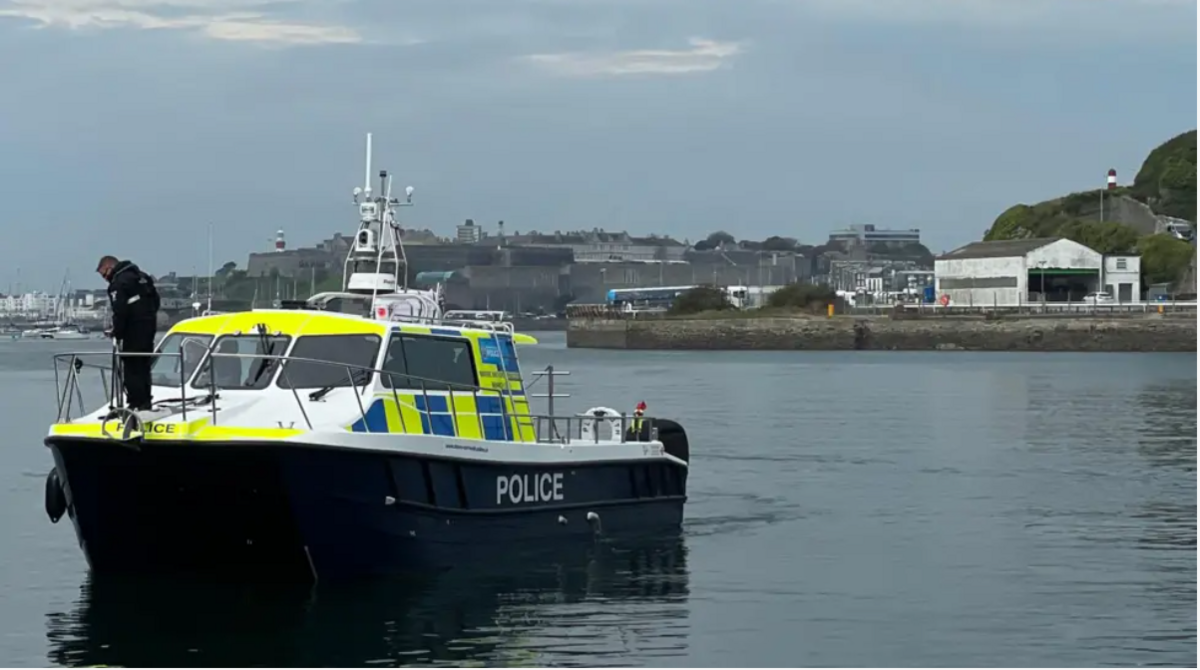
The police vessel Neptune is equipped with a long-range infrared camera and an underwater drone
Lucy Moreton, from the Immigration Services Union, said there were a number of reasons why people used clandestine methods of entry.
"Maybe you've been here before, maybe you're subject to a deportation order, maybe you want to come into the UK and not be detected, because you want to be involved in something that is criminal," she added.
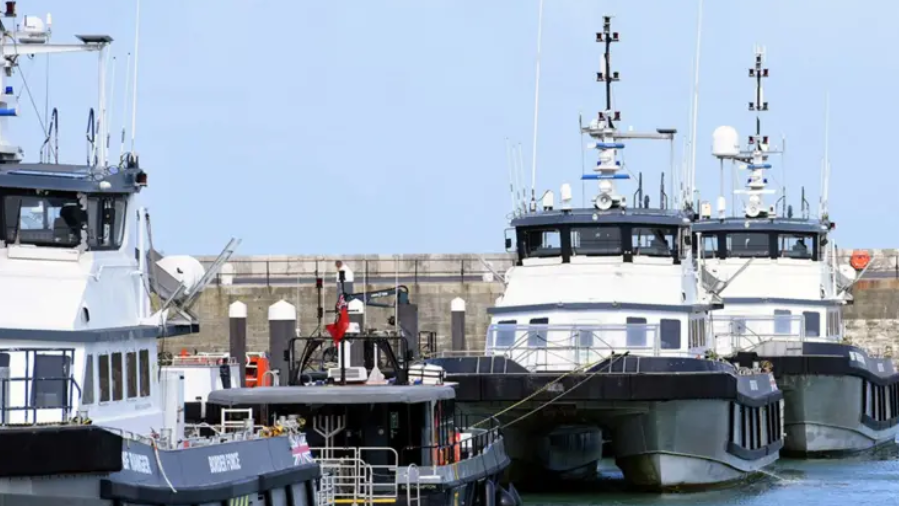
Border Force vessels moored at Ramsgate Harbour in Kent
BBC South East used a Freedom of Information request to find out how many times yachts had been seized at maritime locations in relation to the smuggling of people or goods.
But the Home Office said the information, which it holds, was exempt from disclosure, so as to not prejudice law enforcement and the operation of immigration controls.
Experts including Tony Smith, the former director general of Border Force, believe the numbers are likely to be very low compared with the number of small boats arriving across the Channel.
"Although there is some evidence that migrants are using small ports to evade border control - especially those from countries with little likelihood of lodging successful asylum claims - there is no tangible evidence that this is getting worse," he said.
"Drug smuggling remains a problem across the board and the challenge for the Border Force is to deploy its resources as best it can to counter this, both at small ports and by other routes."
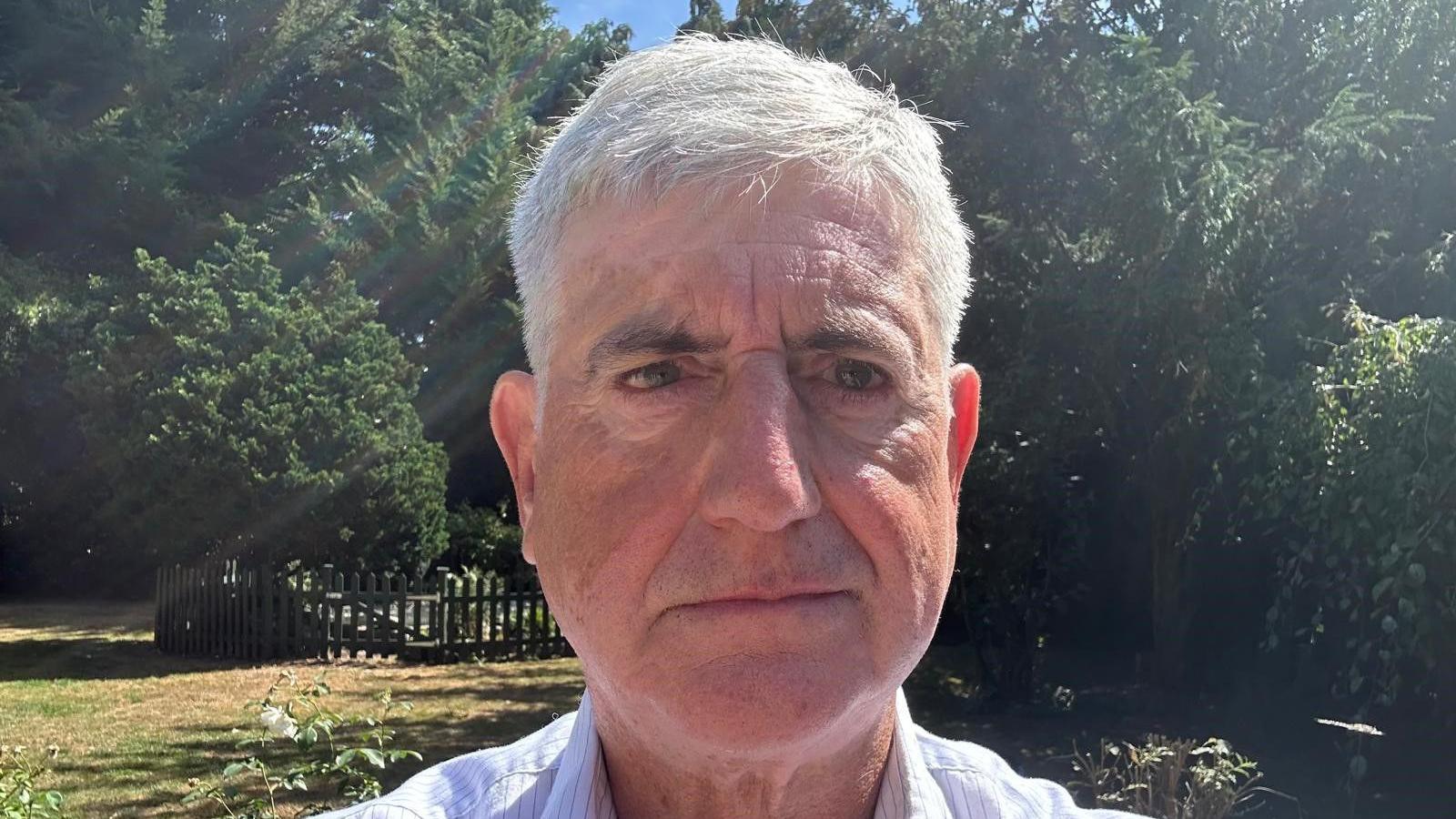
Tony Smith is the former head of Border Force
In March, Border Force's Charlie Eastaugh told the BBC: "There are hundreds of harbours and marinas in the UK and it would not be a reasonable expectation for Border Force to have a fixed presence at all of them."
But he said they received "really good information" from the maritime community which the force responded to.
Border Force said it collaborated with a number of different agencies to protect the UK coastline. These includes private marinas, yacht clubs, and harbours.
Last week minister and Dover MP Mike Tapp told the BBC: "The focus and priority is stopping those boats and bringing down illegal migration."
The government recently announced it would fund a further 300 National Crime Agency officers to help tackle people smugglers behind Channel crossings.
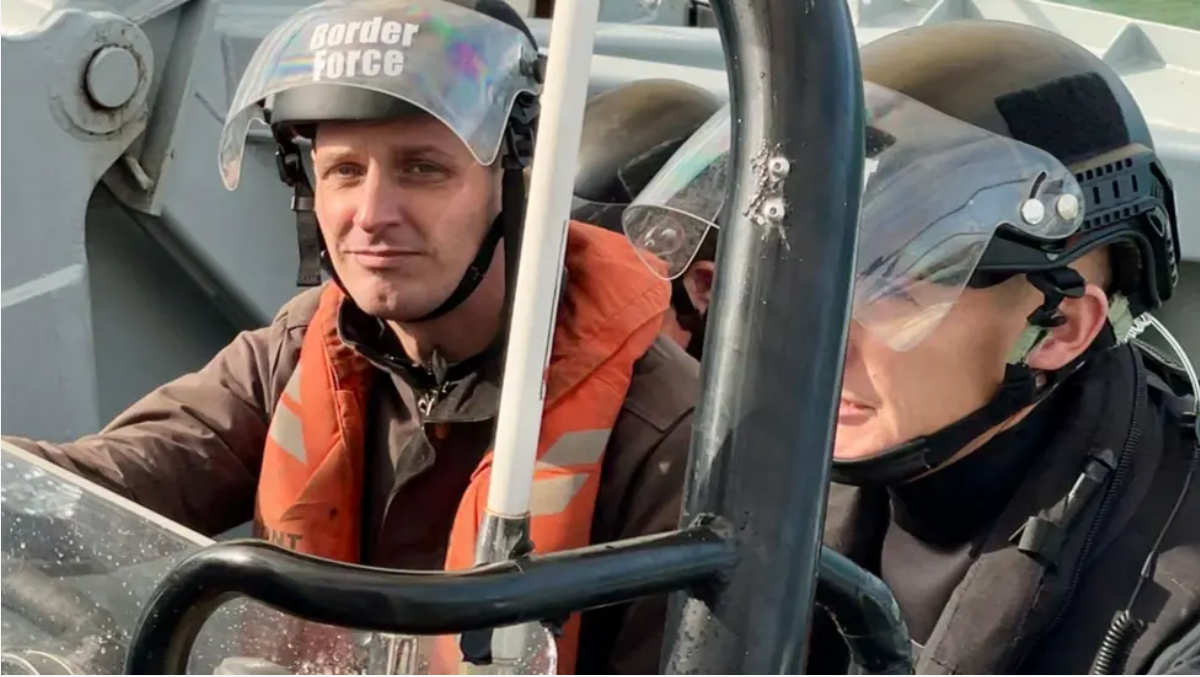
Home Office minister Mike Tapp on board a coastal patrol vessel
A Home Office spokesperson said: "Maritime assets patrol and protect all 11,000 miles of the UK coastline, this includes harbours and marinas.
"We work closely with the National Crime Agency and local communities to utilise intelligence that helps to disrupt the gangs and make record-breaking seizures."
Follow BBC Sussex on Facebook, external, on X, external, and on Instagram, external. Send your story ideas to southeasttoday@bbc.co.uk, external or WhatsApp us on 08081 002250.
Related topics
- Published15 October
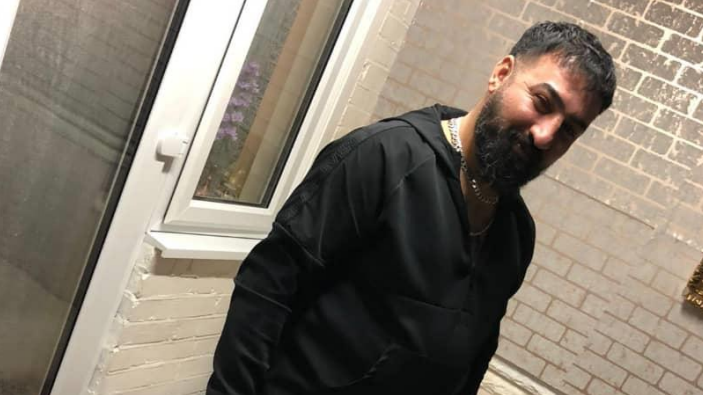
- Published22 July
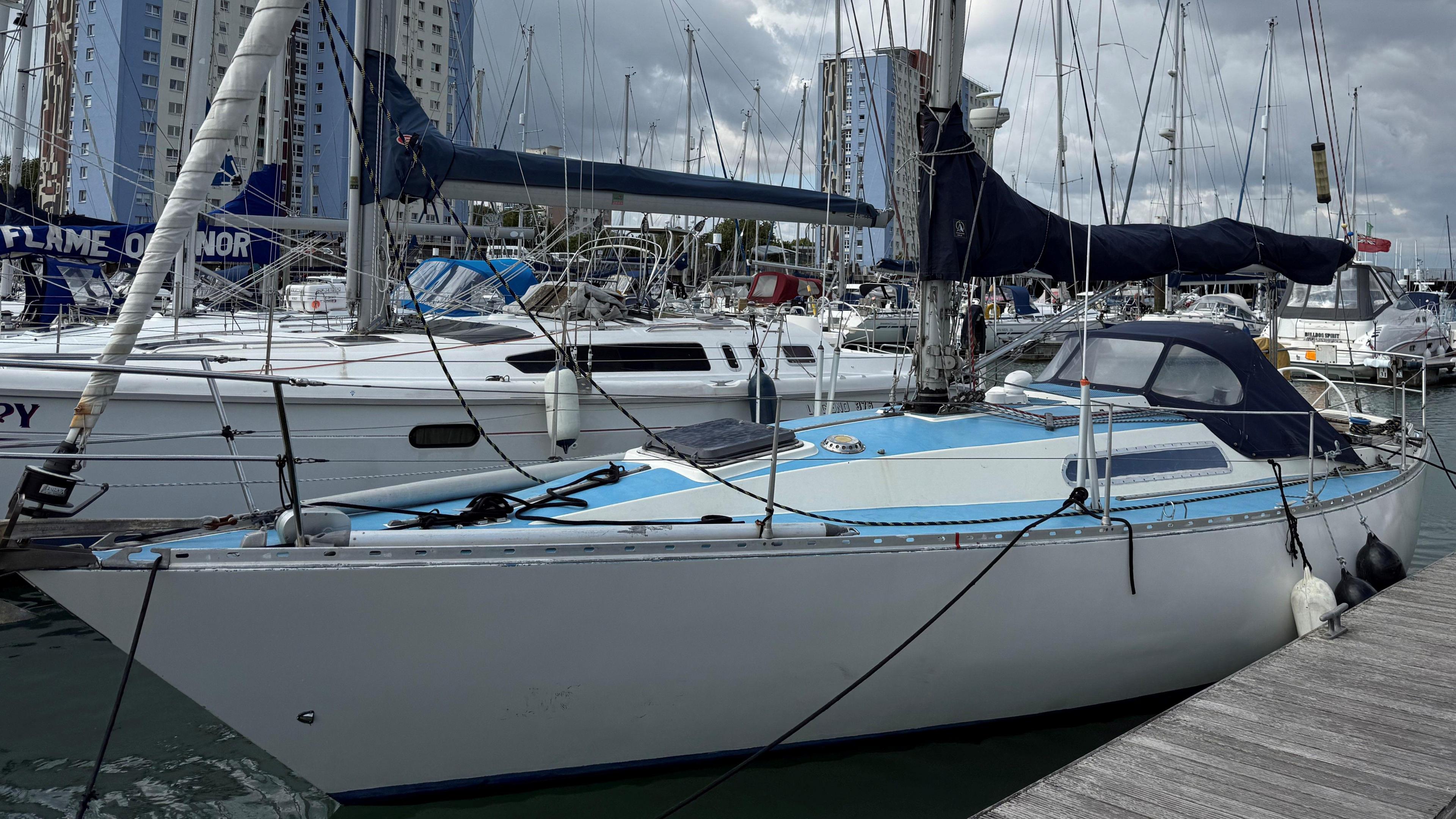
- Published16 October
